|
Lost for nearly 30 years, an interview has recently surfaced on YouTube between Michel Foucault and Dutch anarchist Fons Elders. The interview was conducted before Foucault’s debate with Noam Chomsky, which was moderated by Elders. Elders, some may recall, paid Foucault partially in the hash for the debate and tried to compel Foucault to appear in a red wig.
The history of the video is as interesting as the footage itself. Lionel Claris, who worked with Elders to translate the video into English, reports that interview broadcasted on Dutch TV in 1971 was all but lost after the station caught fire. The 15 minutes in the YouTube video is all that remains of an interview that reportedly lasts over an hour. This video is the version edited by the Dutch TV station to omit Elder’s questions, and thus only contains Foucault speaking with some untranslated Dutch filler on Foucault. The interview takes place in Foucault’s apartment in Paris on Rue de Vaugirard. Claris writes that he found the footage by chance while doing undergraduate research at Hampshire College. The transcript of the interview was retained, however, and published in the 2012 book “Freedom and Knowledge.” Fons Elder has posted part of that book for free online here. It can also be purchased from his website. In the interview, Foucault discusses his work in “Madness and Civilisation” and ties it to his greater project. He goes on to talk about knowledge and truth, the subject and societal tolerance. “The universality of our knowledge,” Foucault explains, “has been acquired at the cost of exclusions.”
loading...
watch the video below:
loading...
1 Comment
loading...
Michel Foucault: Beyond Good and Evil, director David Stewart's sublime 1993 picture of the social theorist of power in history figures out how to crush a considerable measure of data into its short 42 minutes and gives a really sufficient prologue to Foucault's life and work.
Foucault's acid trip at Zabriskie Point watching the sun set over Death Valley tuning in to Stockhausen (which the philosopher depicted as the greatest experience of his life) is reproduced, just like a 1947 execution of Antonin Artaud's Theater Of Cruelty. Foucault's medication utilize, his cooperation in the sadomasochistic San Francisco leather scene and death from AIDS in 1984 at the age of 57 are also covered.
Michel Foucault's brilliant life and enormously powerful work were both battles against restriction—the limits of language, of social structures and stultifying historical identities. All things considered, he figured out how to incite researchers of each conceivable influence, since he raised doubt about every single positive program—the antiquated supreme, primitive, and liberal humanist—while ardently declining to supplant them with extensive option frameworks. And yet systems, social institutions of power and domination, were decisively the issue in Foucault's estimation. Through his procedure of assaulting chronicles to deliver “archaeology of knowledge”,Foucault demonstrated how every organization is shot through with what William E. Connolly calls "self-assertive… systemic brutality."
The 1993 documentary film below, Michel Foucault: Beyond Good and Evil, investigates the rationalist and his intricate and dubious life through meetings with associates and biographers and re-institutions of Foucault's storied endeavors in the American counterculture. Biographer James Miller brings up that Foucault was “preoccupied with exploring states that were beyond normal everyday experience… drugs, certain forms of eroticism,” as an approach to “reconfigure the world and his place in it.” In this, says anthropologist Paul Rabinow, Foucault tried to restore the inquiries that sober analytic philosophy had to a great extent abandoned: questions about what it means to be human, beyond the social categories we take as natural and given.
loading...
"The medium is the message" is a phrase coined by Marshall McLuhan meaning that the form of a medium embeds itself in any message it would transmit or convey, creating a symbiotic relationship by which the medium influences how the message is perceived. Marshall McLuhan also coined the phrase 'the global village', declared that 'the medium is the message', and he described what we now realise is the internet, 30 years before it existed. Yet, McLuhan also warned of an 'age of anxiety' and the loss of privacy in the age of electronic media. Now, at a time when our work, social and family lives are governed by media and interconnectivity, what can we learn from examining McLuhan's message? And where are we heading in the digital era? In June 1977 Marshall McLuhan visited Australia and was a guest on Monday Conference, a live ABC television show hosted by the unflappable Robert Moore. The ABC has recently unearthed this footage, which remained in the archives for 34 years. As you’ll see, many of the ideas debated are just as relevant and contentious today. Watch The video below :
An interview and audience Q&A with Ballard during his promotion of EMPIRE OF THE SUN, (1984)
James Graham Ballard (November 18, 1930 - April 19, 2009) was a British science fiction writer. A large number of his writings describe dystopias.
His first stories date from 1956 and in the 60s he becomes one of the authors of reference of the call new wave of English science fiction. His literature develops the problems of the twentieth century, whether environmental catastrophes or the effect on a man of technological evolution. In his first novel, The Drowned World (1962), he imagines the consequences of a global warming that causes the polar ice caps to melt. He was followed by The Wind of Nowhere (1962), The Burning World (1964), The Drought (1965) and , set in a wooded area of West Africa that is literally crystallising. In 1973, he published Crash, a disturbing and explicit meditation on the relationship between sex drive and cars, and provoked a tense debate over the limits of censorship against "obscenity" when David Cronenberg adapted it to film in 1996. The film was about to not be released in England. After Crash(1973) and Concrete Island (1974) arrived High Rise (1975), The Unlimited Dream Company (1979) and Hello America (1981). In 1984 Ballard reached a much wider audience with the autobiographical work Empire Of The Sun, the story of a child in wartime, which then continued in The Kindness of Women (1991). The Day of Creation, another novel based in Africa, was published in 1987 and Running Wild in 1988. His next novels were Rushing to Paradise (1994), an apocalyptic tale that takes place in a Pacific atoll, Cocaine Nights (1996) and Super-Cannes (2000), both reworkings of the classic black novel on a decadent Costa del Sol, The First, and The Riviera, the second. Ballard was also a prolific author of stories and, in 1996, appeared his collection of essays and reviews Millennium Guide for the user.
Watch the video below:
loading...
loading...
On 25 July 1984 Professor Jean Baudrillard, of the University of Paris-Nanterre, gave the first Mari Kuttna Memorial Lecture. The Memorial Lectures were set up as a result of Madame Barbara Gre's generous gift to the University of Sydney; they will enable distinguished filmmakers and film critics, theorists and historians, both from Australia and overseas, to contribute to our understanding of the cinema. Professor Baudrillard's lecture, The Evil Demon of Images, was given to a large and enthusiastic audience which included Madame Gre, the Chancellor, Sir Hermann Black, and the Vice-Chancellor, Professor John Ward; as well many friends came to pay their respects to Mari Kuttna and to her work, and, perhaps most significant of all, many young people who share Mari Kuttna's love of film. The Memorial Lecture was preceded by a tribute given by the Chancellor and by a personal appreciation by David Stratton, former Director of The Sydney Film Festival. Edited versions of their presentations are included in this publication. As Director of the Power Institute of Fine Arts -in which the Kuttna Bequest is located -- I acknowledged the far-sighted generosity of Madame Gre in encouraging students and scholars to develop an understanding of this most significant aspect of contemporary culture. I pledged the Institute to continue the work of Mari Kuttna. Death cut short her own work, but her mother's generosity will ensure the continuance of the ideals to which she devoted her life. Professor Virginia Spate Power Institute of Fine Arts University of Sydney Watch the video below : The information of the video concerns a very important global issue of today on the subject of techno-cybernetic control of governments and society that is responsible for a great number of technologically unrelated global issues such as global capitalism, social media, social control, global exploitation, the global elite, bio-power, trilateral and unilateral economic domination, civil war, war in the Middle East, colonization, the world economy, Third World exploitation, famine, environmental issues, the politics of race, gender, sexuality and mental illness. A subject that is rarely if ever discussed in a global context. It was derived from a transcript I wrote on Gilles Deleuze's 1990 'Postscript on the Societies of Control' inspired by Gary Hall, Clare Birchall and Peter Woodbridge's 2010 text and video 'Deleuze's Postscript on Societies of Control' published in Culture Machine. It includes as well a historical overview of the antipsychiatry movement in France which Felix Guattari participated during the 1960's and 1970's. Integrated into the theory, the presentation also shows an exact correlation of Norbert Wiener's principle thesis of Cybernetics with the Deleuzian-Guattarian concept of gaseous and fluidic forms and flows of corporate capital in today's society, the micropolitics of control, deterritorialized assemblages, and distributed networks such as the internet, Facebook, social community organizing in neocapitalist democracies, IBM agenda, global policing, military police, community organization, enforcement and manipulation by technological monitoring and scanning of public spaces and information privacy issues. Social democracy and corporate governance is theorized in a post-structuralist interpretation of emerging globalization issues and pinpoints some of the mechanisms involved suggesting that politicians and the corporate entities that run their embodied governments (including the monetary economic system) are manipulated by humans who in turn are being controlled at a higher level by invisible technological processes of cybernetics. A generalised model of technological control and cybernetic government -- the cutting edge of contemporary 'conspiracy' and cultural theory. If you follow the discourse of Zizek, Noam Chomsky, Chris Hedges, the occupy movement, Jean Baudrillard, simulacra, transhumanism and The Matrix movies you will gain immense insight and a philosophical-scientific account of what has been going on in the world today and the world of tomorrow. watch the video below :
"turn the camera on yourself.... as that is all you see anyway...."
"be nice to people on the way in... you'll meet them on the way out..." - William S. Burroughs
loading...
Watch the video below:
loading...
Anyone who has even an easygoing enthusiasm for media and interchanges will eventually have considered or at any rate found out about the hypotheses of Marshall Mcluhan. A Canadian logician of correspondence hypothesis, his work is seen as one of the foundations of the investigation of media hypothesis. McLuhan is maybe best known (in any event at a pop social level) for begetting the expressions "the medium is the message" and " the global village". In any case it was in his capacity to foresee our present condition with respect to media joining and the web that has seen McLuhan's musings and speculations remain so applicable and still fundamental perusing. What he wrote in 1962 : “The next medium, whatever it is – it may be the extension of consciousness – will include television as its content, not as its environment, and will transform television into an art form. A computer as a research and communication instrument could enhance retrieval, obsolesce mass library organisation, retrieve the individual’s encyclopedic function and flip it into a private line to speedily tailored data of a saleable kind”. Don't imagine it any other way, Marshall Mcluhan was no optimist and huge numbers of his contemplations and speculations on media go about as a notice post that we would be very much instructed to notice with respect to. Especially when such a variety of appear to be very cheerful to indiscriminately surge off to the closest Apple store and line up like lemmings all together get their hands on the most recent gleaming gadget. Mcluhan begs us to consider the ramifications of this visually impaired acknowledgment and at any rate for a minute think about how these advancements and gadgets may transform us as a general public and culture. This is the essence of his reductionist explanation "the medium is the message" : “First we build the tools, then they build us.” Watch the video below, Marshall McLuhan in two minutes : Thelema Now! Host Frater Puck discusses William S. Burroughs, possession, synchronicities and chaos magick in a documentary short from Imperium Pictures. Watch the video below : Since Deleuze is considered to be, says Parnet, a philosopher of desire, so what is it? Watch the video - D comme Désir, "L'Abécédaire de Gilles Deleuze, below. |
|
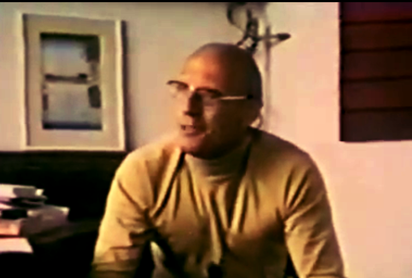
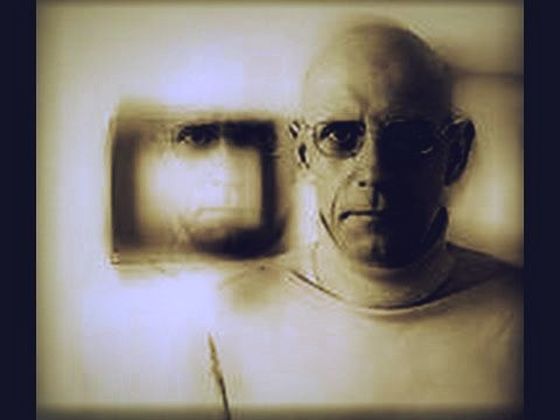
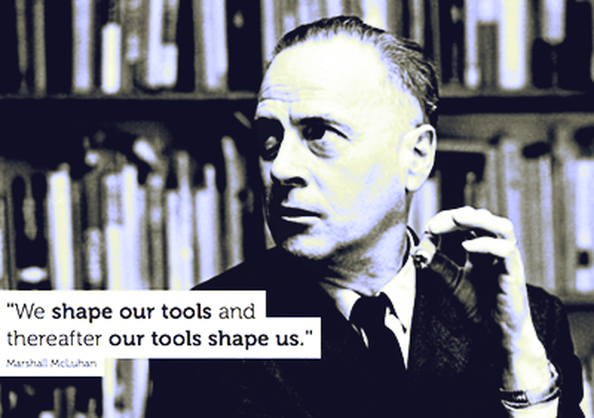
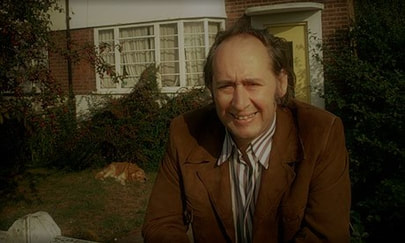
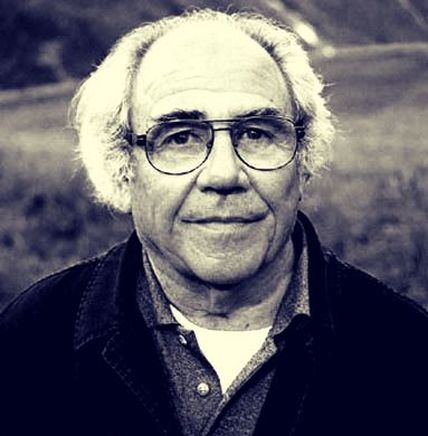
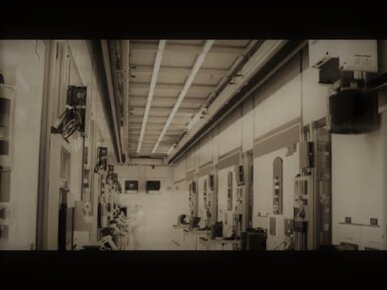
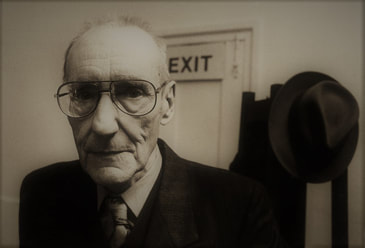
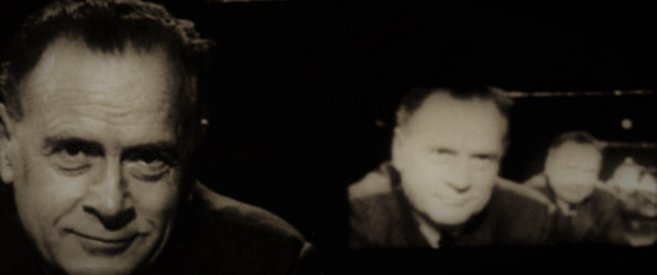
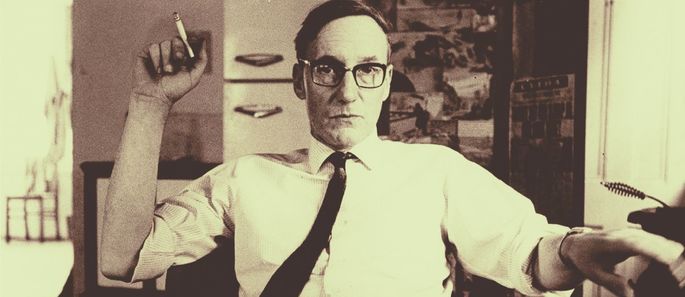
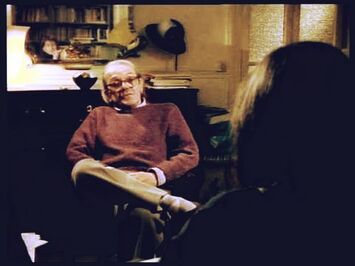
 RSS Feed
RSS Feed
